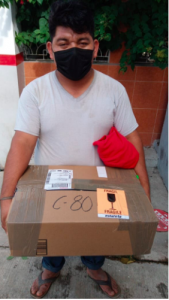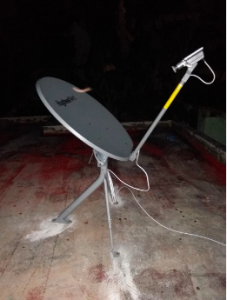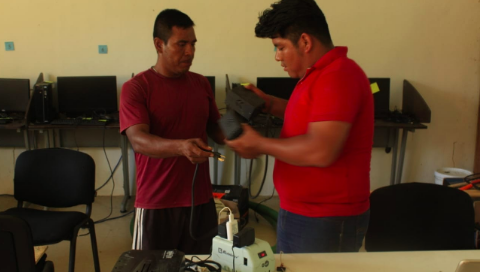Computer Center in the Community of Mancolona, in the State of Campeche Mexico.
The coronavirus pandemic has highlighted the inequalities that exist in society in terms of access to healthcare, access to food, and access to information. For Indigenous Peoples, who are especially susceptible to COVID-19 due to pre-existing diseases, lack of access to medical care; food insecurity; and the need for accurate, timely and culturally appropriate information is literally a matter of life and death. Latin America has been particularly affected by the pandemic and the Pan American Health Organization estimates that Indigenous Peoples in the Amazon are ten times more likely to contract COVID-19 than any other group. Compounding the health crisis is the digital divide that limits the ability of indigenous peoples to access information on health, education and rights.
In the case of Mexico, according to data from the Federal Government’s Social Coverage Program, 44% of people in rural localities lack mobile data coverage (around 11 million people). Likewise, some 5,200 localities that have an Indigenous population (at least 40%) are outside the coverage areas of the fixed and mobile broadband telecommunications networks (around 3 million people). The Government of Mexico, in its vision of promoting the welfare of the population through the use of digital applications and services nationally, has prioritized digital transformation as a lever for social development and to fully exercise the rights of the population.

CRIPX Communicator receives laptops
To expand the scope of the Indigenous Rights and Resource Hub (the ‘Resource Hub’) and address the urgent need for Indigenous communities to be connected to the internet in order to communicate and access information during the pandemic, Equitable Origin and the Consejo Regional Indigena y Popular de Xpujil (CRIPX) in partnership with HughesNet Mexico are using satellite technology to improve Internet access in Indigenous communities. A pilot project was launched in November of this year in the communities of “La Mancolona” and Nuevo San Jose in the State of Campeche, Mexico. HughesNet has already connected over 300 rural communities in the last year with satellite internet.
The connectivity initiative aims to provide indigenous communities with access to information on education, health and human rights, which is especially critical during the COVID-19 pandemic, but is also important for the future in terms of making informed decisions about sustainable development.
Satellite internet will allow Equitable Origin to work with local indigenous ‘communicators’ and provide them with on-going remote training and support. The communicators will serve as a focal point in the community for the Resource Hub and will be able to produce and distribute information to strengthen Indigenous rights. After the initial results of the pilot project, Equitable Origin seeks to expand this program to additional communities in partnership with indigenous organizations in Mexico as well as to Ecuador, Peru, and Colombia in partnership with the Coordinator of Indigenous Organizations of the Amazon Basin (COICA).

HughesNet Mexico -Satellite internet antenna
Written by: Bruno Taborga (Equitable Origin’s Program Coordinator).




You must be logged in to post a comment.